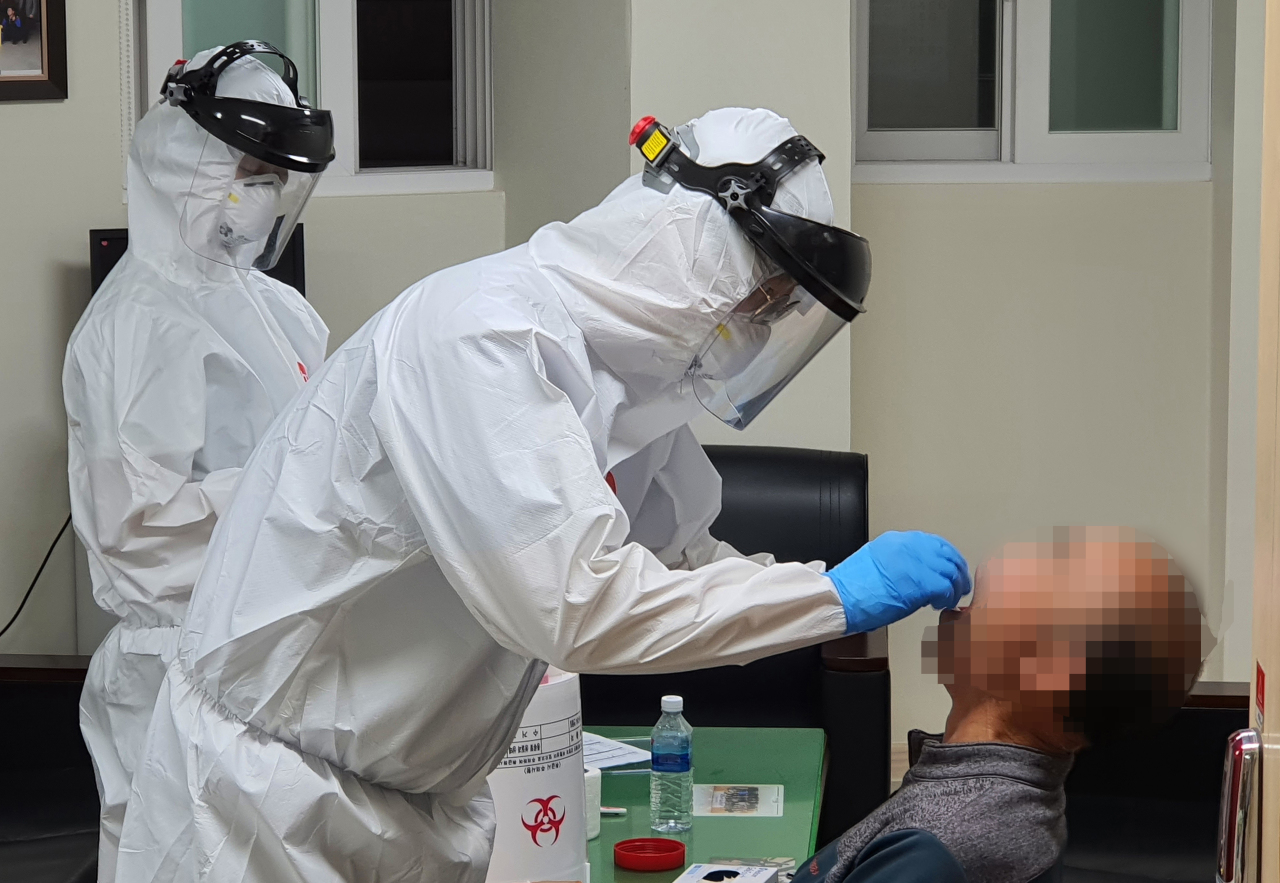S. Korea striving to break club-linked transmission chain

South Korean health officials are trying to break the chain of transmission tied to cluster infections in Seoul's nightlife district of Itaewon as the country grapples with related sporadic outbreaks across the country.
The country reported 16 new COVID-19 cases, including 13 local infections, raising the total coronavirus caseload to 11,206, according to the Korea Centers for Disease Control and Prevention (KCDC).
The daily increase in virus cases dropped below 20 after hovering around the threshold for the past three days.
Itaewon has emerged as a new hotbed for COVID-19 after a 29-year-old man tested positive for the virus on May 6 following his visits to clubs and bars in Itaewon.
As of noon, 237 cases have been linked to the Itaewon cluster, up 12 from a day earlier, though health authorities believe it is under control and has not evolved into uncontrollable, explosive infections. The country has so far tested more than 82,000 people over the Itaewon-related cases.
However, health authorities are on alert over undetected transmission routes that could lead to the further spread of the virus as they continued to see secondary and tertiary infections linked to the Itaewon outbreak in recent weeks.
Of the Itaewon-linked cases, 112 were reported in Seoul, and 59 were identified in Gyeonggi Province.
The KCDC said it is also keeping a close eye on cases coming from bible study meetings in some cities.
"What is important is to break the chain of transmission before the outbreak develops into community spread," Yoon Tae-ho, a senior health official, said in a briefing. "We need to speed up our contact tracing and virus testing."
The country also remains vigilant ahead of the further reopening of schools this week following the return of high school seniors last week after a nearly three-month suspension.
Infections from unidentified routes accounted for 6.8 percent of the new cases reported in the last two weeks, according to the KCDC.
The country reported one more virus fatality, raising the death toll to 267.
The total number of people released from quarantine after making full recoveries stood at 10,226, up 13 from the previous day, according to the KCDC, with 713 patients currently under treatment.
Despite the sporadic transmissions detected nationwide in connection with the Itaewon cluster, the government said it has yet to consider reverting to stricter social distancing, adding that the country's quarantine capabilities remain sufficient enough to handle the control and treatment of the virus.
However, to prevent the further spread of the virus, some municipal governments have issued administrative orders banning gatherings at entertainment establishments, which has de facto forced club and bar owners to suspend business.
Seoul and the surrounding Gyeonggi Province also have issued orders on coin-operated karaoke rooms, or "noraebang" in Korean, after health authorities identified virus infections there.
The government will require entertainment establishments, like clubs and bars, with high infection risks to keep quick response (QR) code-based customer logs starting next month, as part of efforts to reduce errors and delays in contact-tracing caused by people giving false personal information.
Health authorities said they will also reinforce virus prevention guidelines regarding the use of public transport.
Wearing face masks will be mandatory for all bus and taxi drivers starting Tuesday.
The transport ministry added that people who do not wear masks may not be permitted to get on buses and taxis. It will enforce a rule that does not penalize bus and taxi drivers who refuse to serve customers not wearing masks.
Starting Wednesday, the ministry said all air passengers will be required to wear face masks on board regardless of their flights.
The KCDC said it has decided to establish a system to detect and analyze a mysterious pediatric inflammatory illness possibly linked to COVID-19, as such a disease has been reported overseas.
Doctors are advised to report to health authorities if they identify patients showing symptoms of multisystem inflammatory syndrome in children (MIS-C). (Yonhap)